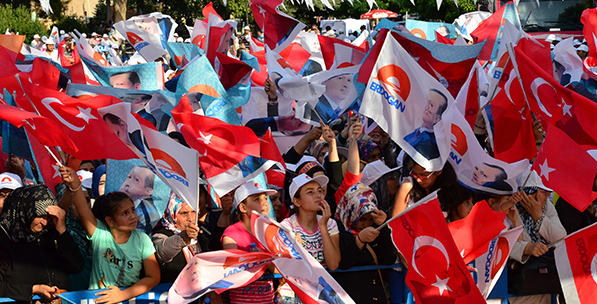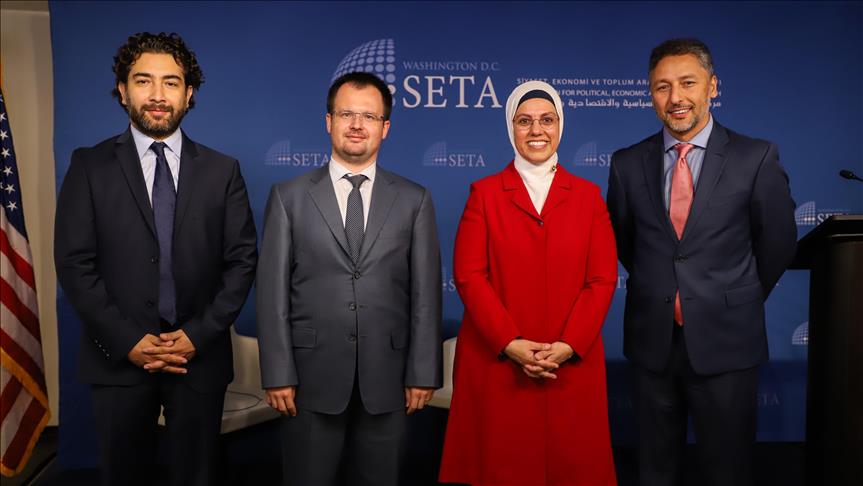People tend to think about politics in terms of decades. Thanks to Turkey's transformation, we are currently contemplating the next decade of the country's politics with exclusive reference to political parties and the agency of their leaders. The public can afford to concentrate on changes within the Justice and Development Party (AK Party) or on opposition ranks, since the guardianship of the bureaucratic elite and the Gülen Movement have largely disappeared. Since 2002, the AK Party has played a critical role for Prime Minister Recep Tayyip Erdoğan's efforts to exercise political power without arbitrary restrictions in order to transform the country. Conveying his message to the masses through effective communication, Erdoğan has mobilized his party to build sincere and organic ties to society. Although the AK Party brought together members of various social groups, his strong leadership, coupled with his emphasis on consensus and consultation, has prevented factionalism.
Furthermore, the party's achievements over the past 12 years have, to various degrees, changed the ways and language of political activity. That the Republican People's Party (CHP) has turned away from militant secularism to nominate a conservative for president attests to this fact. A serious challenge, however, awaits the AK Party, which claimed the crown jewel of Turkish politics by getting their leader elected president. Over the next 10 months, the party will have to withstand two distinct tests: primarily, it remains to be seen how the party will handle the pain of change rooted in the three-term limit – and particularly the relationship between more experienced politicians and a younger generation eager to take over the responsibility. The second challenge relates to the possibility of these tensions turning into a struggle between two competing visions for the party. In other words, the greatest challenge for the AK Party relates to a competition between different interpretations of the "new Turkey" agenda in the post-Erdoğan period.
Let me be clear. An executive-oriented vision seeking to build the New Turkey could clash with a reconciliatory perspective with the stated purpose of reaching out to all social groups. The obvious downside of such a development would be the weakening of Erdoğan's political style, which has thus far combined reform with inclusion and change with challenges against power holders, through dichotomies and to subsequently trigger a battle of generations. It goes without saying that proponents of "old Turkey" at home and abroad would not stay on the sidelines of such a struggle. Considering that the internal deliberations of the AK Party will largely determine the course of Turkish politics for the next decade, the easiest way to lock Erdoğan up at the presidential palace, and by doing so prevent the emergence of the new Turkey, will be to take Turkey's political battles to the AK Party.
Since Turkish politics has long revolved around the AK Party, carefully managing the efforts to create friction within the party organization represents a vital challenge. Erdoğan, addressing his party's local administrators on the occasion of the 13th anniversary of the AK Party's establishment, made it clear that he was well aware of the situation. On that day, the president-elect asked the people to look beyond peer pressure and appreciate the AK Party's 12-year tenure, and made the point that fighting the guardianship regime and reaching out to different groups at once represented the basis of his politics. Making a reference to the party's original mission, he emphasized participation, consultation and common thinking to describe the future chairman and prime minister as a leader who took collective wisdom over oligarchical power. Erdoğan's aforementioned statement was to warn his fellow party men against ongoing attempts to provoke clashes within the AK Party and establish that there was no friction over the party's future vision. Greed for power could not change the course of destiny even if








